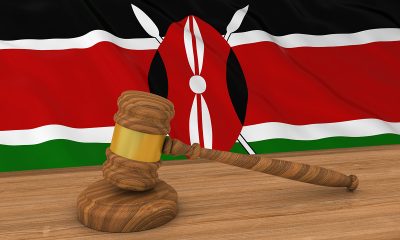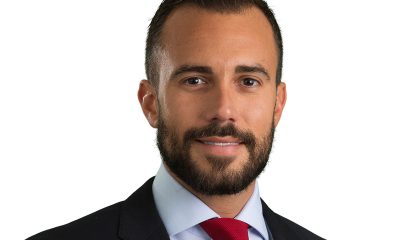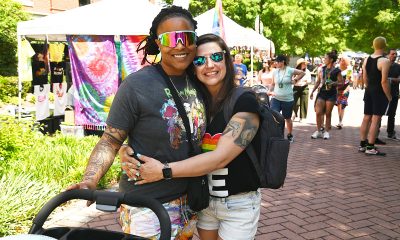Africa
Uganda, Kenya, Tanzania move to further curtail LGBTQ rights
Ugandan MPs considering another anti-homosexuality bill
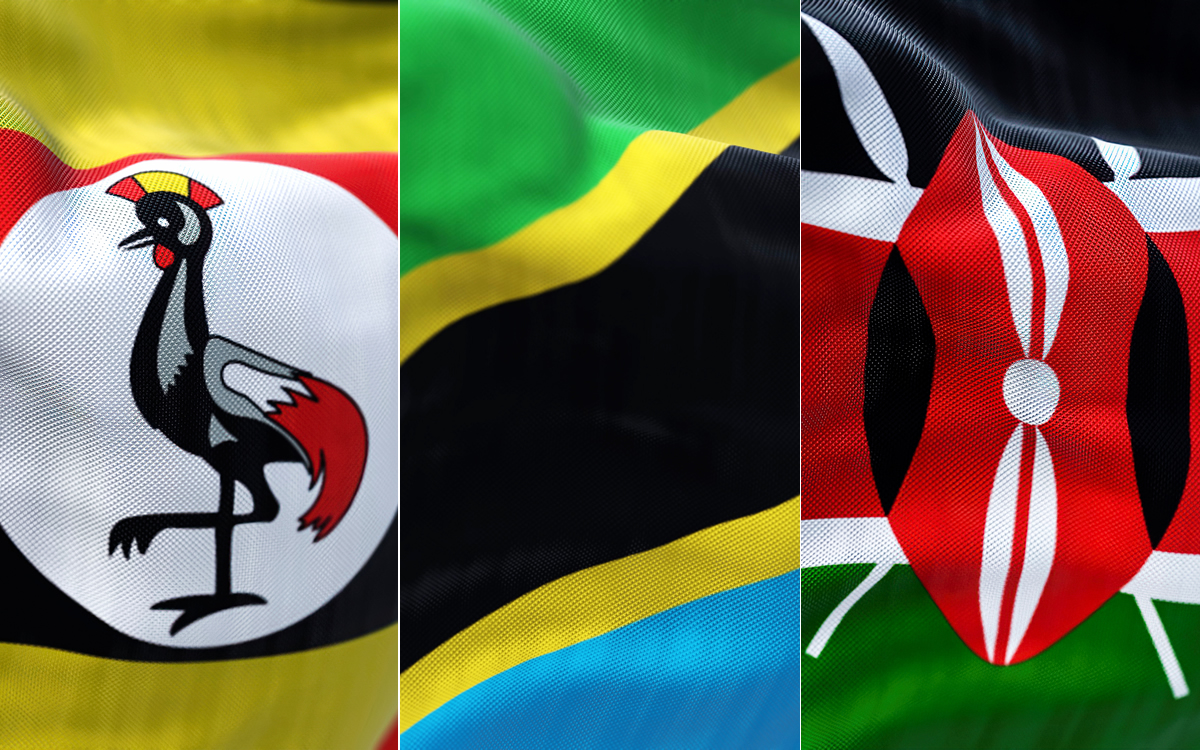
Three East African countries are tightening the noose on the so-called promotion of homosexuality through new laws and banning LGBTQ-specific content.
Lawmakers in Uganda and Kenya have introduced bills that would curtail the promotion of LGBTQ-specific activities with stiff penalties above their respective penal codes that criminalize consensual same-sex sexual relations. Tanzania has recently banned LGBTQ-specific books.
Uganda’s Anti-Homosexuality Bill, 2022, would sentence anyone who identifies with “lesbianism, gay, transgender, queer or any other sexual or gender identity contrary to the binary categories of male and female” to 10 years in prison.
The proposed law that was set to be tabled any time after its postponement on Wednesday for further preparation would impose a 5-year prison sentence or a fine of around $27,000 or both to anyone who is found guilty of promoting homosexuality in Uganda. The measure’s definition of promotion includes production, procuring, marketing, broadcasting, disseminating using electronic devices, publishing LGBTQ pornography and funding or sponsoring homosexuality.
Uganda’s latest move follows a growing number of LGBTQ-specific activities in the country that include the painting of rainbow colors at a children’s park in January that a local council removed because it went “against the norms of the people of Uganda.”
Moreover, Uganda’s NGO Bureau, which monitors NGOs that operate in the country, in January recommended a new law that “prohibits the promotion of LGBTQ activities in the country.”
Also, the move results from the Church of England’s decision earlier this year to allow its priests to bless same-sex couples. This angered the Anglican Church of Uganda and Muslims who called upon MPs to crack down on homosexuality through legislation.
Anyone convicted of providing a house, a brothel or any other place in which LGBTQ-specific activities can take place could face up to seven years in jail under the new bill.
“Where the offender is a corporate body or a business or an association or a non-governmental organization, on conviction its certificate of registration shall be canceled and the director, proprietor or promoter shall be liable to two years imprisonment on conviction,” the bill reads.
Anyone found guilty of conducting a same-sex marriage could face up to two years in prison and the business that hosts such a ceremony could lose their business license.
The Office of the U.N. High Commissioner for Human Rights has cautioned Uganda’s Parliament against proceeding with the bill, while noting that the “State has a duty to ensure full protection of all people from violence and discrimination regardless of sexual orientation or gender identity.”
Frank Mugisha, a Ugandan LGBTQ and intersex rights activist, has raised concerns about a rising number of homophobic attacks committed by people and security officials in the country since January.
“The LGBTQ community continues to face a harsh operational environment, an increase in direct and indirect attacks, and surveillance in its spaces. This has made it difficult for LGBTQ organizations to do advocacy and deliver services to the communities because of the fear of being arrested by security agencies,” Mugisha said in a statement.
He has documented dozens of harassment and assault incidents to LGBTQ and intersex people, including one on February 18 where a transgender woman residing in Kampala, the Ugandan capital, was assaulted at a friend’s party after discovering her gender.
In Kenya, a bill that would further criminalize and punish people who engage in homosexuality and promote it is poised to be introduced in the country’s Parliament.
“The proposed law intended to further the provision of Article 45 (2) of the Constitution of Kenya and to protect the family will not only consolidate the existing laws relating to unnatural sexual acts but also increase the penalty for those convicted of engaging or promoting the acts to imprisonment for life or consummate sentence,” reads the notification. “Article 45 (2) of the constitution provides that every adult has the right to marry a person of the opposite sex based on the free consent of the parties to start a family, which is recognized as the natural and fundamental unit of society.”
Last week’s Supreme Court ruling that allows an LGBTQ and intersex rights group, the National Gay and Lesbian Human Rights Commission, to register as an NGO after years of court battles with the country’s NGOs Board has elicited criticism from religious leaders, lawmakers, the president and Kenyans themselves.
“We respect our court’s decisions but in Kenya, we have our culture, traditions, and religious beliefs. We can’t go the road of women marrying women or men marrying men. Same-sex marriage will happen somewhere else and not in Kenya,” President William Ruto stated on March 2 at a women’s function in Nairobi, the country’s capital.
Pressure is mounting on the seven Supreme Court judges to reverse the ruling, with Attorney General Justin Muturi vowing to challenge it. Muslim and Christian groups have planned a March 17 protest against the ruling.
The ruling has put the judges in a bind since a Supreme Court decision is final and cannot be appealed in any court in the country. The East African Court of Justice, which is based in Arusha, Tanzania, can consider an appeal.
Critics of the ruling argue that the queer group does not deserve an association, since Kenya’s penal code criminalizes homosexuality and the Supreme Court decision gives leeway for legalizing it from an appeal pending in the country’s second highest court.
Thirteen groups that include the American Jewish World Service, Amnesty International-Kenya, the National Gay and Lesbian Human Rights Commission and the Kenya Human Rights Commission on Thursday issued a joint statement in support of the ruling.
“The judgment has demonstrated the great strides that Kenya has taken to promote the rule of law, democracy, and human rights,” it reads.
The groups insist that granting the LGBTQ and intersex community the right to form associations is in line with the spirit of Kenya’s constitution, which guarantees freedom of expression under Article 33 and freedom of association under Article 27 without any form of discrimination.
Tanzania, which also criminalizes same-sex relations, has joined neighboring Kenya and Uganda in restricting LGBTQ and rights.
President Samia Suluhu last month described LGBTQ rights as “imported cultures” as she cautioned university students against it.
The Tanzanian government recently banned a popular series of children’s books from schools that contain LGBTQ-specific content.
“The Diary of a Wimpy Kid” by U.S. author Jeff Kinney and another book, “Sex Education: A Guide to Life” were removed from libraries in public and private schools. The government has also committed to increasing its surveillance on books with LGBTQ-specific content.
Africa
Senegalese NGO claims new president discussed LGBTQ rights with top EU official
Jamra Ong Islamique demands government expedite anti-LGBTQ law
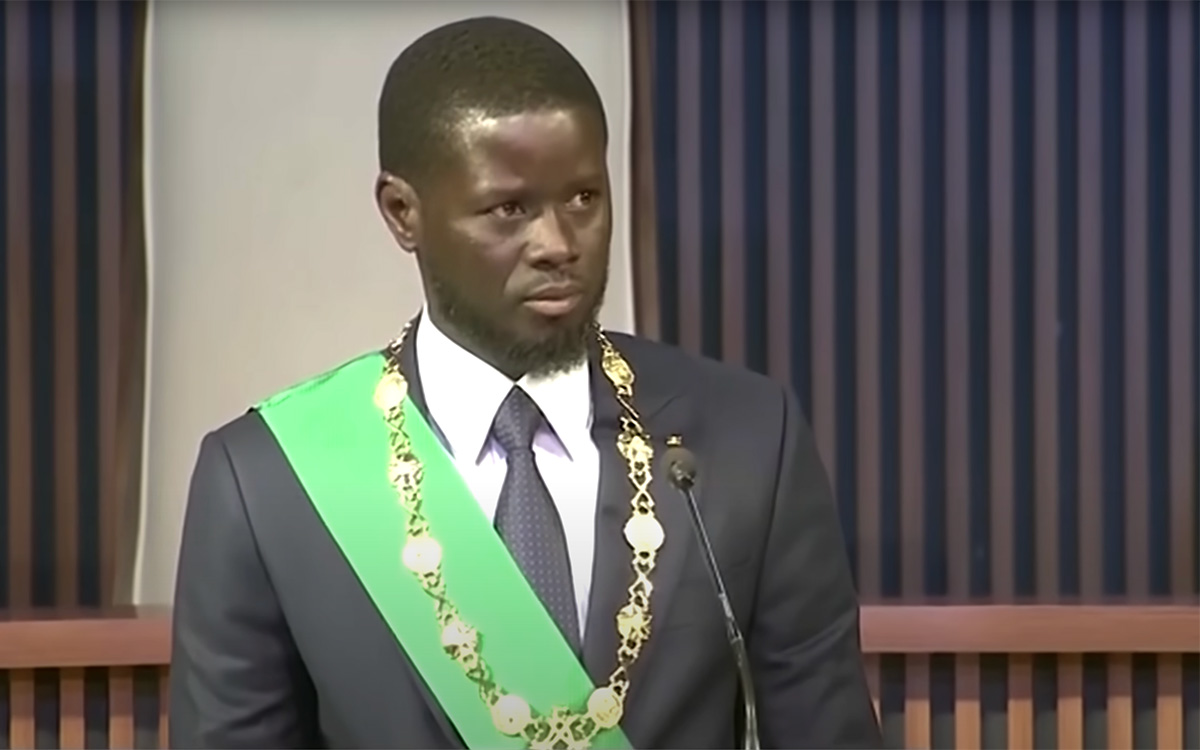
A Senegalese NGO has called on the government to expedite the process of enacting an anti-LGBTQ law after the country’s new president met with a top EU official.
Jamra Ong Islamique made the call during a press conference last Wednesday after newly elected Senegalese President Bassirou Diomaye Faye met with European Council President Charles Michel.
Mamae Makhtar Gueye of Jamra Ong Islamique claimed the meeting between the two dignitaries involved an acknowledgment of LGBTQ rights in Senegal. Gueye said Michel is an LGBTQ ally who wants to change Senegal’s cultural customs that do not condone LGBTQ rights.
“His ardent proselytism for the expansion of LGBT ideology could not leave Jamra indifferent,” said Gueye. “Countries including Gabon, Central African Republic, and Mauritius, amongst others, that underestimated the nuisance of these propagandists of homosexuality paid dearly for it because these global lobbyists ended up legalizing this abomination, so beware.”
Gueye, however, has received a lot of backlash and has been accused of not raising the same sentiments during the tenure of former President Macky Sall, who also met with Michel.
“Did he come as a defender of the LGBT cause or as a European official? Did he come to talk about LGBT rights or partnership agreement between the European Union and Senegal?,” asked Ahmadou Diaw, a Senegalese academic. “Mr. Gueye should know when to alert and when to shut up.”
Cheikh Maï Niang, a social commentator, described Jamra as a “useless organization” that is focused on restricting the freedom of the Senegalese people.
“They are absolutely good for nothing apart from eating the taxpayer’s money,” said Niang. “Where is the democracy we cry about everyday? Seems like they are here to restrict the freedom of the Senegalese people.”
“Not everyone is interested in religion,” added Niang. “We wasted too much time with these useless things. Let’s talk about developing the country. People should live their lives in the manner they want.”
Jamra has previously made proclamations against the LGBTQ community.
The organization in February — before Senegal’s presidential election that took place on March 24 — accused the EU Electoral Observation Mission to Senegal of wanting to indoctrinate Senegalese people with their pro-LGBTQ narrative.
Senegal does not have a law that specifically criminalizes those who identify as LGBTQ or advocate for them. Article 319 of the country’s penal code criminalizes consensual same-sex sexual relations with a fine and between one and five years in prison.
Some Senegalese lawmakers have sought to increase the prison sentence to 10 years for anyone convicted of engaging in homosexuality. These efforts thus far have not been successful.
Samm Jikko Yi (Together for the Safeguarding of Values), an Islamic lobby group that includes many organizations, in 2022 organized an anti-LGBTQ demonstration in Dakar, the country’s capital. Protesters called for harsher penalties for Senegalese who identify as LGBTQ and/or advocate for LGBTQ rights.
The Washington Blade in 2022 noted LGBTQ people have suffered physical and sexual abuse while in prison.
Senegal’s deep religious roots, which are largely Islamic, have contributed to the lack of tolerance of LGBTQ people in the country. This reality has prompted LGBTQ Senegalese to either flee the country or remain in the closet.
Media reports indicate there are fewer bars, clubs and other places where LGBTQ people can freely socialize.
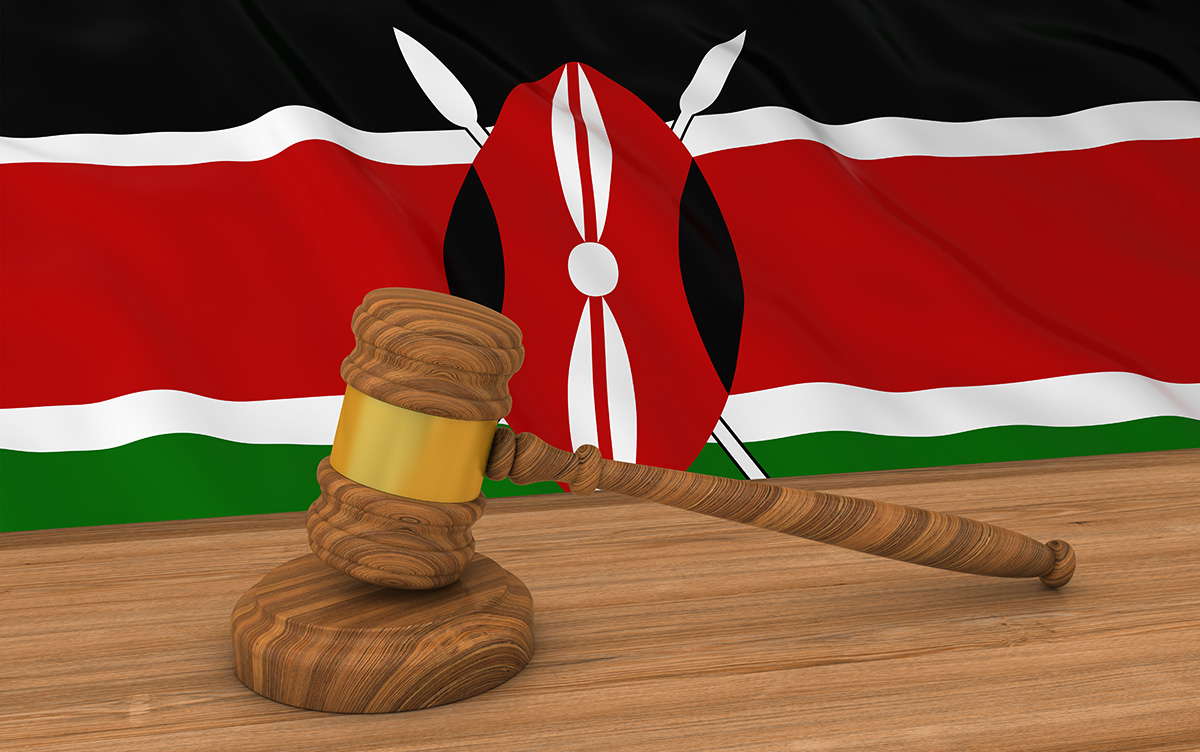
The queer community in Kenya can breathe a sigh of relief after a Mombasa court on Monday ruled clerics, politicians, and anti-LGBTQ groups cannot hold homophobic protests or engage in incitement.
The Mombasa High Court’s ruling, however, is temporary until July 24 when the court in Kenya’s second-largest city determines a petition on the issue.
Two petitioners — Mr. JM and the Center for Minority Rights and Strategic Litigation — last October sued Police Inspector General Japhet Koome for allowing religious leaders and lobby groups to hold homophobic protests whenever a court rules in favor of the LGBTQ community.
The petitioners’ effort to demand a ban on anti-LGBTQ protests in Kenya was in response to a series of homophobic demonstrations, particularly in Mombasa, after the Supreme Court last September affirmed an earlier decision that allowed the National Gay and Lesbian Rights Commission to register as an NGO.
Mombasa High Court Judge Olga Sewe in her Monday ruling also directed the petitioners and the respondents, who include Koome, two anti-LGBTQ activists and a national lobby group dubbed the “Anti-LGBTQ Movement” that organized protests, to file their witness lists and counter statements within 14 days of the July hearing.
“Pending the hearing and determination of this petition, this Honorable Court (does) hereby issue a conservatory order restraining the 2nd and 5th Respondents from calling on or inciting members of the public to carry out extra-judicial killing, lynching, punishing, stoning, forcible conversion, or any other means of harming LGBTQ+ identifying persons and their homes,” Sewe stated.
She also stopped the “Anti-LGBTQ movement,” Koome and any state agency from any attempted “expulsion from Kenya or any party of Kenya of LGBTQ+ identifying persons or closure of organizations serving LGBTQ+ identifying persons.”
The court’s directives come after the Center for Minority Rights and Strategic Litigation led a protest on April 11 against the “anti-LGBTQ Movement”‘s invasion of Mvita Clinic in Mombasa that “hateful misinformation” reportedly sparked because the facility also serves queer people.
“Mvita Clinic, like all healthcare providers, serves the entire community,” CMRSL stated. “Targeting them for LGBTQ+ inclusion is discriminatory and an attack on the basic right to health. Everyone deserves access to healthcare, and we urge an end to the spread of lies. Let’s promote inclusivity and ensure Mvita Clinic remains a safe space for all.”
CMRSL in response to Osewe’s ruling said it was a “major win for safety and equality in Kenya” because it allows the LGBTQ people to live with “greater peace of mind.”
The Initiative for Equality and Non-Discrimination, an LGBTQ rights group, meanwhile lauded the court’s decision as a reprieve to homophobic attacks on the queer community.
“There is some reprieve given the security incidents we witnessed during the protests on Sept. 15 last year,” INEND Communications Officer Melody Njuki told the Washington Blade.
“We had rescued LGBTQ+ folks in Mombasa, Kilifi, and Lamu, due to security incidents caused by the hatred the anti-LGBTQ movement mongered and the calling of violence towards people associated with the queer group and those identifying as members,” she added.
PEMA Kenya, a Mombasa-based gender and sexual minority organization, also applauded the court’s temporary injunction, describing them as timely in protecting the LGBTQ community against all forms of homophobic attacks.
“We welcome the ruling and we believe it will impact our members who for some time felt robbed of the freedom to express themselves,” PEMA Kenya director Ishmael Baraka told the Blade.
The Nature Network, a rights organization for refugees living in Kenya, also welcomed the Monday ruling which it termed “a positive step showing the courts’ commitment to upholding human rights for all.”
“Anti-LGBTQ Movement” Chair Salim Karama, however, declined to respond to the Blade’s questions about the ruling until determination of the petition’s status. He noted the organization is waiting for their lawyer to speak with them about the decision and the filing of counter statements that Sewe ordered.
As LGBTQ rights groups seek the queer community’s protection in Kenyan courts, parliament, on the other hand in is set to consider a petition that notes what it describes as the proliferation of homosexuality in the country.
National Assembly Speaker Moses Wetang’ula on Feb. 27 referred the petition to the relevant parliamentary committee for inquiry after MP Ali Mohamed, a member of the ruling party and a vocal LGBTQ rights opponent, presented it in the National Assembly, the lower house of the Kenyan parliament, on behalf of a group of more than 70 Kenyans and religious organizations opposed to homosexuality.
Africa
For queer Nigerians, being on gay dating apps is still a risk
Homophobes target users for violence

Gay hookup apps like Grindr, and dating apps like Tinder and Bumble have managed to proliferate queer communities in countries like Nigeria.
Those who seek one night stands find what they want while those looking for love equally find what they seek. These platforms have managed to position themselves as safe spaces for queer people in anti-gay Nigeria. In recent times, however, it is proving to be unsafe, as homophobic people are quickly learning about the apps, and opening accounts that either seek to outrightly threaten queer people, or pretend to be queer, have long chats with gay people, invite them over, and inflict violence on them.
Take the case of Biodun, a queer Nigerian man who joined Grindr to meet up with guys like him.
After Biodun had built a connection and agreed to meet with someone whose display name was “Mamba,” they decided to meet up only for him to be met with violence. Apparently, Mamba ran a catfish account.
“I’ll never forget that day,” Biodun, who asked the Washington Blade not to use his last name because of safety concerns, said. “I still think about it, and sometimes blame myself for being very careless, even though Grindr was supposed to be our safe space.”
Biodun’s experience isn’t peculiar to him.
In Nigeria, draconian laws that criminalize same-sex relationships exist, making queer people turn to the digital realm to explore their identities and seek connections beyond the confines of societal oppression that comes with the physical environment. Gay dating apps such as Grindr, therefore, have emerged as virtual sanctuaries, offering spaces for queer Nigerians to forge friendships, find solidarity, and pursue romantic or sexual relationships. Spaces like this, however, have morphed into a landscape fraught with danger, as homophobic people have weaponized these platforms to perpetuate hate and violence.
“Sometimes, I often wonder how they learned about these platforms,” Daniel, which is not his real name, told the Blade. “You would think that it is just us in the platforms, until you find out that the accounts are rooted in homophobia.”
One time, someone’s bio read, “I’m only here to deal with the gay people. I know all of you, and I will find and kill you. We no want una for here (translates to we do not want you here, in English.)” It was a stark reminder that these spaces are no longer LGBTQ-friendly for Nigerians. In 2014, there was the passage of the Same-Sex Marriage Prohibition Act by former President Goodluck Jonathan, which not only criminalized same-sex unions, but also imposed severe penalties on anyone involved in LGBTQ advocacy or support.
This law catalyzed a surge in discrimination and violence against queer Nigerians; emboldening regular civilians, religious extremists, and even law enforcement agencies to target individuals perceived as deviating from traditional gender and sexual norms. Again, amid this hostile environment, gay dating apps emerged as lifelines for many queer Nigerians, offering avenues for discreet communication, community building, and the pursuit of intimate relationships.
The very anonymity and freedom these apps provided, however, became double-edged swords.
The advent of screenshot and screen-recording capabilities on these apps, for example, reduced the risks of exposure, strengthening the safety and privacy of users. However, this also comes with its own lapses, as queer people using Grindr have often relied on screenshots and screen recordings to confirm the identities of potentials with their friends, before accepting to meet.
“Before the removal of the screenshot option, I usually shared photos of others with my trusted friends,” Biodun shared. “But since that was taken off, there was no way for me to do that.”
Although, according to Grindr’s terms and conditions, the removal came with privacy concerns, as it was to facilitate a safe dating experience.
This erosion of digital safe spaces is depriving queer Nigerians of vital avenues for self-expression and affirmation,and is exacerbating the psychological toll of living in a society that continues to systematically demonize their identities. Moreover, the normalization of homophobic rhetoric and violence in both physical and digital realms has perpetuated a cycle of fear and oppression, and is reinforcing this notion that LGBTQ individuals are inherently unworthy of dignity and respect. Despite these challenges, though, the resilience of queer Nigerians continue to persist, as they defy societal norms and assert their right to love and be loved.

